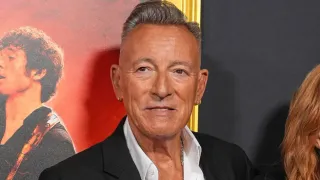May 21, 2017
Gay Ugandan Refugee Seeks Funds to Help His Compatriots
Matthew S. Bajko READ TIME: 6 MIN.
Now that he is restarting his life in the Bay Area, Ronnie Kayigoma is trying to assist other gay Ugandans who have fled anti-gay discrimination in their home country and are in Kenya waiting for their asylum applications to be processed.
In March, he launched a GoFundMe page with a goal of raising $7,000 to pay for food, HIV medications, and other medical costs for LGBT HIV-positive refugees and asylum seekers in the East African country. To date, his campaign has netted $325.
"I look for other people to donate so people have food and can take medication. You have to eat well to take those medicines. Some people stop taking medicine because they can't eat the food you get in Nairobi," said Kayigoma, who since June has sent $1,000 of his own money to LGBT people he knows who are stuck in Nairobi, Kenya waiting to be relocated to either Europe or the U.S.
Kayigoma, 30, fled Kampala, Uganda in November 2014 by bus for the Kenyan capital in order to seek asylum. A gay activist and paralegal in his home country, Kayigoma had come out publicly in 2009 fighting legislation dubbed the "Kill the Gays" bill. After the country's president signed the bill into law in February 2014, harassment of LGBT Ugandans increased.
"It spoiled people," recalled Kayigoma, and "they started to attack people."
At first he refused to flee and remained in Kampala to assist LGBT people who were arrested. One day on his way to the police station, Kayigoma was kidnapped. Held hostage for several days, he was able to escape after having sex with one of his captors and immediately made arrangements to leave Uganda.
"I said I can't wait for myself to die. I have to seek asylum," said Kayigoma. "I was already sending people to Nairobi to seek asylum."
Presenting himself as a tourist at the Kenyan border, Kayigoma made his way to the Nairobi office of the United Nations High Commissioner for Refugees to start the asylum process. As he waited for his application to be granted, he found that Kenya was no haven, as he faced discrimination for being both a foreigner and gay.
Unable to work, he struggled to make ends meet on the $45 he received each month as an asylum seeker. With financial help from the Ireland-based group Front Line Defenders, which assists human rights defenders across the globe, Kayigoma was able to afford his own housing.
After 18 months in Kenya, Kayigoma was resettled to the Bay Area in April 2016. Since the fall he has been living with a host family in North Berkeley and is now in the process of applying for a green card.
"I have to be here, this is my country. My family disowned me and my country doesn't love me," said Kayigoma, who in October found work as a security guard in San Francisco, a job he works at five days a week. "I want to become a U.S. citizen, maybe continue my education."
Remains Connected
He has remained connected to LGBT asylum seekers in Kenya and Uganda via social media, often fielding pleas for financial help. During an interview with the Bay Area Reporter, seated at his host family's kitchen table, Kayigoma scrolled through his cellphone showing the receipts and photos he asks those he helps to send him to prove the money sent is being properly spent.
One photo showed a gay Ugandan in a hospital bed, his Kenyan doctor at his side, who had been attacked and needed minor surgery. Various screen shots were of receipts for HIV medications. He also uses online payment methods that allow him to better track where the money is spent.
"If you don't send me a receipt, I will not send the money to you," said Kayigoma, who has been able to assist a dozen people since last summer.
Francis Mutima, 26, who is gay and HIV-positive, has received $120 from Kayigoma to help pay for his housing, food, and medical bills. He knew Kayigoma in Uganda and is now in Nairobi waiting for his asylum application to be approved. He is one of 200 LGBT asylum seekers he knows who are currently in the city.
Talking to the B.A.R. via Facebook, Mutima explained, "the reason is I was disowned by my parenting the community wanted to do mob justice on me because of my sexuality."
He hopes people will donate to Kayigoma's fundraising effort, as his friend "is transparent and he is willing to help the helpless LGBTI asylum seekers."
A former chef in a Kampala hotel, Mutima said he would like to find work so he can pay to attend school.
"Life is tough, we are arrested by the police every day, because of no proper documentation and being reported to the police by neighbors once they come to know we are gays," he wrote.
Sarah Imes Borden, a college theater instructor in Nebraska, and her husband, who also teaches university-level theater classes, have also been financially assisting LGBT Ugandan asylum seekers in Kenya. She was first made aware of their situation while doing research for a book that included interviews she conducted with those involved in the first gay play mounted in Uganda.
Those contacts led her to strike up an online friendship with Kayigoma while he was in Uganda. Borden helped him financially after he fled to Kenya, and he has vetted others who asked for her support. She also asks for receipts and photos of the person with the goods or medicines as a show of proof, and starts out sending smaller dollar amounts.
"That is what it has been ever since; if someone reaches out to us and says this person got beat up or is starving, we try to find ways to help," said Borden, who graduated from Cal State Fullerton with a master's in acting.
Referring to a line from a recent "Spiderman" movie, in which the title character says he has an obligation to use his abilities for good, Borden said she feels the same way when it comes to assisting refugees. She is in the process of setting up a nonprofit called the Underground Railroad of the 21st Century to formalize the assistance.
"If we can help in some way, and we don't, that is on us. It is our responsibility," said Borden, who preferred not to disclose the amount of money she and her husband have donated over the years.
As for Kayigoma launching the GoFundMe campaign, Borden said it is the right way to go.
"It is going to be micro-lending and micro-giving that keeps these people alive," said Borden, who has been unable to afford visiting Kayigoma in person. "I do think Ronnie better understands now how it is not easy to find a large chunk of money you can send to someone without having to sacrifice things on this end."
For donors in the U.S. and elsewhere, even small amounts can translate into significant assistance due to the exchange rate in Kenya, noted Borden.
"You can take $15 here, which is not going to Starbucks three days a week, and on the other end it turns into enough Kenyan shillings to eat for a week," she said. "They can get enough rice, fruit, a dozen eggs, and they will make that last a week."
The situation for the LGBT asylum seekers in Kenya has grown more perilous under the Trump administration as its anti-immigration policies have slowed resettlement efforts to a near stop. While Kayigoma knows of some gay Ugandans who had been issued visas and were able to travel to the U.S. in recent weeks, he said those still in Africa are losing hope.
"They are asking what to do. We are telling them to just wait," he said. "For me about the Trump administration, I feel sad. Being a refugee is not a choice. We are running from our country. Someone is chasing you and they are just closing doors."
Borden also had harsh words about the president, as two men in Kenya she has been helping who were expected to be resettled this summer in the U.S. have now been waylaid and likely won't be able to leave for another year.
"This system takes an incredibly long time," noted Borden. "Anyone who says the vetting system is not thorough has no idea what they are talking about."
To donate to Kayigoma's GoFundMe campaign, visit https://www.gofundme.com/poz-lgbti-asylum-seekers






